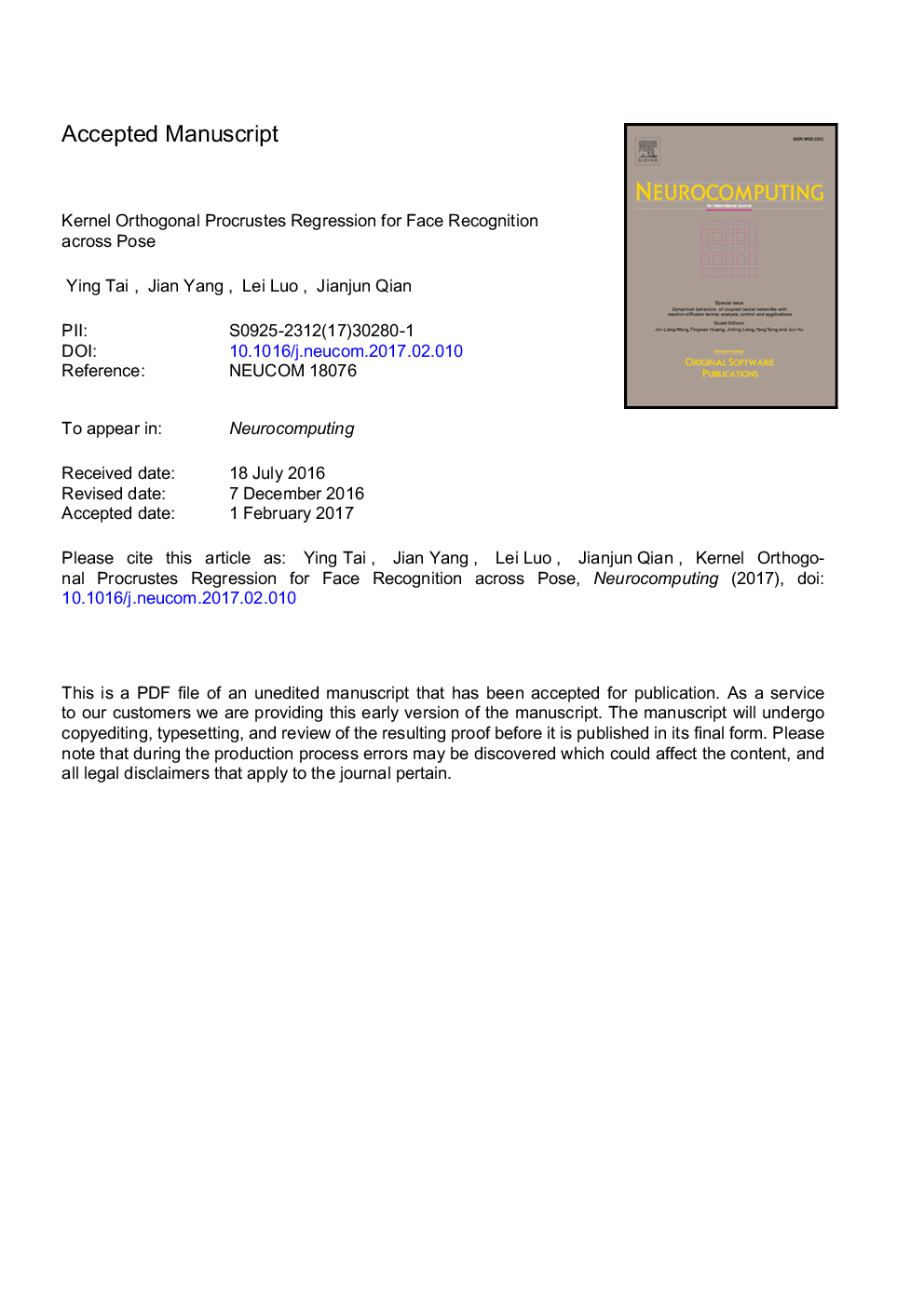| Article ID | Journal | Published Year | Pages | File Type |
|---|---|---|---|---|
| 4947697 | Neurocomputing | 2017 | 24 Pages |
Abstract
Orthogonal Procrustes problem (OPP) is a popular technique to deal with matrix approximation problem. Recently, OPP was introduced into the regression model named orthogonal Procrustes regression (OPR) to handle facial pose variations and achieved interesting results. However, it's well known that the pose variations in the face images change nonlinearly, while OPP aims to seek an optimal linear transformation. Using a linear transformation to approximate the nonlinear pose variation seems to be unsuitable, especially when the pose variation is large. To address this problem, we propose a novel method named kernel orthogonal Procrustes regression (KOPR). In KOPR, samples are firstly mapped into a high dimensional feature space and then OPR is performed in the new feature space by utilizing kernel trick. Compared with OPR, the main advantage of KOPR lies in the fact that some linearly inseparable samples in the original feature space can be linearly separable in the high dimensional feature space. The proposed model is optimized via an efficient alternating iterative algorithm and experimental results on several popular face databases demonstrate the effectiveness of our proposed model.
Related Topics
Physical Sciences and Engineering
Computer Science
Artificial Intelligence
Authors
Tai Ying, Yang Jian, Luo Lei, Qian Jianjun,
